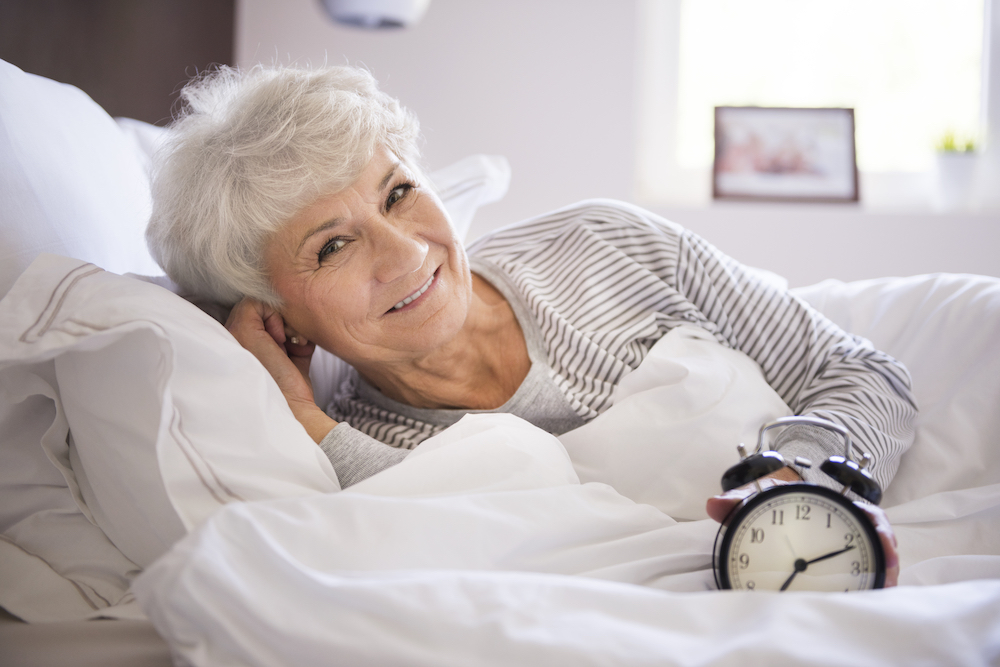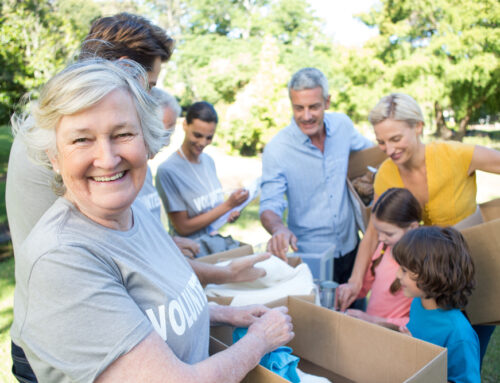
When you have trouble sleeping, it affects every single aspect of your life. If you’re tired, you have a harder time focusing on tasks and remembering details while leaving you upset and grumpy. It’s not fun for you or the people around you, and it can leave you feeling terrible. However, even if you want to sleep, you might find yourself lying awake at night trying to figure out what you can do to make yourself actually fall asleep.
While our retirement community in Madison Heights, MI can help you do a lot of things, trying to help you sleep is unfortunately not one of them. We can offer you tea, a warm place to sleep, and the tools to try to help you fall asleep more easily, but actually getting to sleep is entirely on you.
Hopefully, if you struggle with getting to sleep, one of these tips can help:
1. Have a solid bedtime routine
If you find it difficult to start winding down for the day, try developing a bedtime routine. While this includes going to bed and getting up at the same time everyday, establishing a bedtime routine is much more than that. What are you going to start doing to signify to your body that your day is over and it’s time for sleep?
Some suggestions that you might want to try are taking a hot bath or shower, enjoying a cup of tea, reading a book, or listening to a podcast or music. Don’t forget to turn off the lights!
By giving yourself a small bedtime routine, your body will have more time to realize that it’s time to head to sleep, helping you to actually be tired when you get ready to close your eyes at night. However, you need to remember that this is a routine; if you don’t consistently stick with your routine, it’s not going to be as effective.
2. Exercise during the day
Not only is exercise a great resource to help you stay physically healthy, but exercise is also an amazing way to help you fall asleep – and stay asleep – during the night. When you exercise, you’re able to tire your body out in a way that isn’t overwhelming. Instead, it’s a way to let yourself work your muscles in a way where you might be the good kind of sore – the sore that proves you did some work during the day. Also, when you exercise, your body actually produces chemicals that help to promote a longer, deeper sleep when you go to lie down at night.
If you’re a senior who struggles with mobility, that doesn’t discount you from being able to participate in exercises. There are many different kinds of exercises that you can easily do from a chair or strength training exercises that don’t require much moving around. If you’re concerned, feel free to speak with one of the personal trainers or activity coordinators at our retirement community in Madison Heights, MI. They’ll be able to help you out!

3. Limit caffeine intake
As much as we may love caffeine, an overconsumption of caffeine may be what’s causing you to lose sleep at night. That isn’t to say that you can’t start your day off with a cup of coffee or tea – because heavens knows most of us need it in the morning. Instead, try limiting your caffeine intake to only the morning instead of throughout the day.
If you drink caffeinated tea, coffee, and sodas well into the afternoon and evening, the effects of that caffeine don’t have enough time to wear out and make its way out of your system before it’s time to head to bed.
Additionally, not drinking so much before bed, whether it’s tea, soda, water, or otherwise, helps to limit the amount of times you might wake yourself up in the middle of the night needing to go to the restroom. The fewer times your body tells you that you need to get up, the more restful sleep you’re going to have.
4. Put away your phone
Did you know that if you struggle to sleep at night, that your phone may be to blame? This isn’t only because you might stay up too late on your phone, though that may be part of it. But in reality, the blue light that comes from screens like those of your phone, computer, or television, might be preventing you from getting to sleep and staying asleep. This is because the blue light in your screens mimics sunlight, tricking your eyes and your brain that it’s actually earlier in the day than it is. Because of this, your circadian rhythm gets knocked out of whack, and your sleep schedule suffers because of this.
If you’re concerned that this may be why you aren’t able to get to sleep at night, try putting the phone away about an hour or a half hour before bed. Instead of scrolling Facebook as a bedtime story, grab a paperback and read from that instead. Reading on paper instead of on your phone will help reduce blue light exposure, making it easy to go to sleep.
Retirement Community in Madison Heights, MI
Even when you’re in our luxury retirement community in Madison Heights, MI, you might still struggle with some facets of everyday life. While we do our best to help you manage everything possible, there are just some things that we can’t help with: like helping you get to sleep and stay asleep.
Sleep routines are so subjective that it can often be difficult to find one that works for you. It will take a bit of trial and error, but once you’ve figured out the sweet spot of tricks that works best for you, you’re sure to have some of the best sleep of your life.
If you’re interested in checking out The Reserve at Red Run’s retirement community in Madison Heights, MI, then contact us and schedule a tour today!





